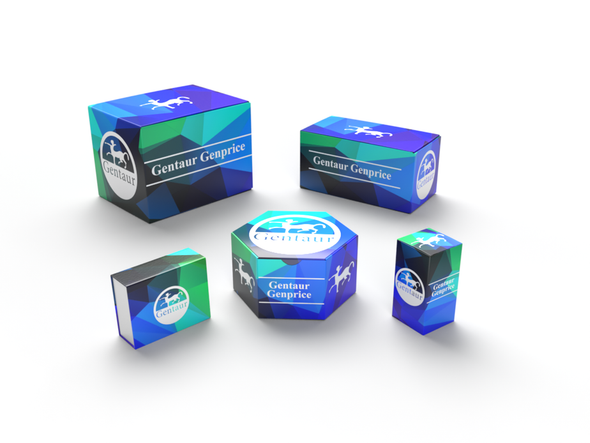Description
CRISP2 Antibody | 5873 | Gentaur UK, US & Europe Distribution
Host: Rabbit
Reactivity: Human
Homology: N/A
Immunogen: CRISP2 antibody was raised against a 15 amino acid synthetic peptide near the amino terminus of human CRISP2.
The immunogen is located within the first 50 amino acids of CRISP2.
Research Area: Signal Transduction
Tested Application: E, WB, IHC-P, IF
Application: CRISP2 antibody can be used for detection of CRISP2 by Western blot at 0.5 - 1 μg/mL. Antibody can also be used for immunohistochemistry starting at 10 μg/mL. For immunofluorescence start at 20 μg/mL.
Antibody validated: Western Blot in human samples; Immunohistochemistry in human samples and Immunofluorescence in human samples. All other applications and species not yet tested.
Specificiy: N/A
Positive Control 1: Cat. No. 1313 - Human Testis Tissue Lysate
Positive Control 2: Cat. No. 11-701 - Human Testis Tissue Slide
Positive Control 3: N/A
Positive Control 4: N/A
Positive Control 5: N/A
Positive Control 6: N/A
Molecular Weight: N/A
Validation: N/A
Isoform: N/A
Purification: CRISP2 Antibody is affinity chromatography purified via peptide column.
Clonality: Polyclonal
Clone: N/A
Isotype: IgG
Conjugate: Unconjugated
Physical State: Liquid
Buffer: CRISP2 Antibody is supplied in PBS containing 0.02% sodium azide.
Concentration: 1 mg/mL
Storage Condition: CRISP2 antibody can be stored at 4˚C for three months and -20˚C, stable for up to one year. As with all antibodies care should be taken to avoid repeated freeze thaw cycles. Antibodies should not be exposed to prolonged high temperatures.
Alternate Name: CRISP2 Antibody: CT36, TPX1, TSP1, GAPDL5, CRISP-2, Cysteine-rich secretory protein 2, Testis-specific protein TPX-1
User Note: Optimal dilutions for each application to be determined by the researcher.
BACKGROUND: CRISP2 Antibody: The cysteine-rich secretory proteins (CRISP) family is a group of four proteins that are strongly expressed in the male reproductive tract and have been implicated in having roles in male fertility. CRISP2, also known as TPX1, has been implicated in the adhesion between spermatids and Sertoli cells, and with CRISP1, is thought to be involved in sperm-egg fusion. CRISP2 has been shown to regulate the Ca2+ influx through ryanodine receptors (RYR) and may influence the acrosome reaction or sperm motility. CRISP2 has also been shown to bind to the mitogen-activated protein kinase kinase kinase 11 (MAP3K11) and localizes to the developing acrosome, suggesting this CRISP2-MAP3K11 complex may have a role in acrosome development.






